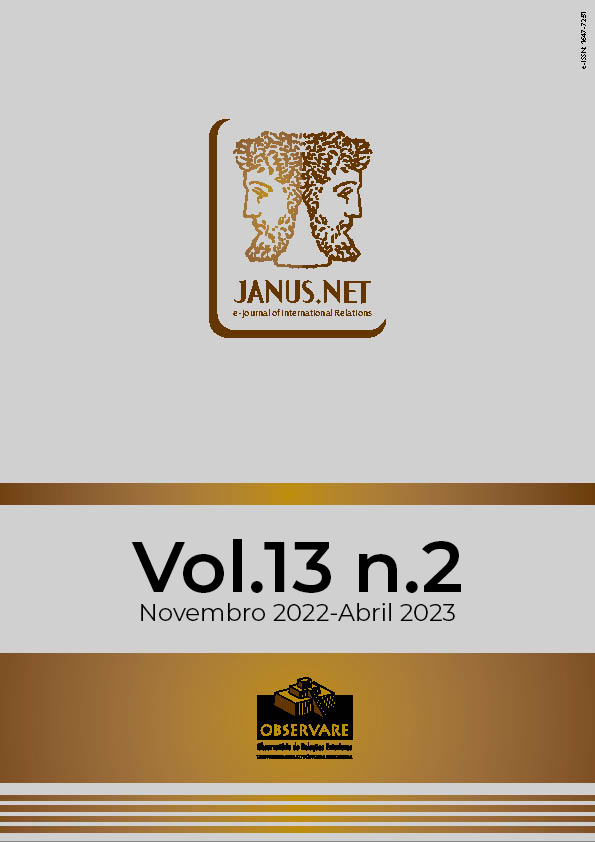This research paper analyzed a fundamental challenge facing the Republic of Guinea-Bissau
(GB) — political instability. Since GB declared independence on September 24, 1973, the
African Party for the Independence of Guinea and Cabo Verde (PAIGC) has failed to bring
political stability to what is now one of the poorest countries in the world. Reviewing GB’s
political history from its first head of state Luís Cabral (1974–1980) to 2022, we see that there
have been 16 heads of state, 30 heads of government, a considerable number of ministers,
numerous failed national economic development plans, a year-long civil war, two suspensions
of the constitution, and at least four successful coups d’état (and numerous failed attempts).
Today, GB remains one of the least developed countries in the world with poor spatial
development initiatives, is located in a challenging regional environment, and has a politically
relevant diaspora. However, GB is home to approximately two million inhabitants, holds a
remarkable range of fauna and flora, and has a unique immaterial heritage that must be
protected — which can only be achieved with political stability. The protection of this heritage
was an important reason that, in 1996, UNESCO classified the Bolama-Bijagós region as a
World Biosphere Ecological Reserve. Considering all of these aspects, we posed and answered
the following research question: How can Guinea-Bissau overcome its governance instability
as a condition to disentangle itself from its impoverished status? This research question is
particularly important in the context of avoiding being exposed to the economic interests of
JANUS.NET, e-journal of International Relations
e-ISSN: 1647-7251
Vol. 13, Nº. 2 (November 2022-April 2023), pp. 354-372
Brittle Guinea-Bissau: A quest for political and economic stability
Francisco José Leandro, Paulo Gonçalves
355
external actors. Methodologically, we use Dahl’s democracy model (2015) and a qualitative
approach in the context of a data triangulation involving primary sources, official sources, and
media reports.
BRITTLE GUINEA-BISSAU: A QUEST FOR POLITICAL AND ECONOMIC STABILITY
Ph.D. in political science and international relations (Catholic University of Portugal). He took part
in a post-doctoral research programme on state monopolies in China — One belt one road
studies. He was awarded the Institute of European Studies in Macau (IEEM) Academic Research
Grant, which is a major component of the Asia-Europe Comparative Studies Research Project. He
was the Programme Coordinator at the Institute of Social and Legal Studies, Faculty of
Humanities at the University of Saint Joseph in Macau, China. He is currently Associate Professor
with Habilitation and Associate-Dean of the Institute for Research on Portuguese-Speaking
Countries at the City University of Macau (China). His most recent books are titled: Steps of
Greatness: The Geopolitics of OBOR (2018), University of Macau; The Challenges, Development
and Promise of Timor-Leste (2019), City University of Macau; The Belt and Road Initiative: An
Old Archetype of a New Development Model (2020), Palgrave Macmillan; Geopolitics of Iran
(2021), Palgrave Macmillan; The Handbook of Special Economic Zones (2021), IGI Global; and
Disentangled visions on higher education: Preparing the next generation (2022), Peter Lang
Publishers. He is member of OBSERVARE-UAL.
Independent researcher and a retired senior officer (Colonel) of the Portuguese Air Force
(Portugal). He has a large experience in research and advising international organizations, as he
operated in a myriad of functions and tasks, including international engagements in European
Union (EU), North Atlantic Treaty Organization (NATO) and the United Nations (UN). Throughout
his career, he has operated in 25 different countries across the Americas, Europe, Asia, and
Africa: he worked as a strategic communicator, performed conflict observation and analysis
functions for NATO, the EU, and the UN; operated as an electoral support staff member, and
program implementer for the United Nations Development Program; and was an advisor at the
United Nations political mission for Afghanistan (UNAMA), making analyses and assessments on
Afghan regional and national governance. He is currently an independent researcher on
international relations, with a particular interest in Portuguese-speaking countries. He
collaborates with the City University of Macau regularly on academic research.
Resumo
Palavras-chave
Como citar este artigo
Leandro, Francisco José; Gonçalves, Paulo (2022). Brittle Guinea-Bissau: A quest for political and
economic stability. Janus.net, e-journal of international relations, Vol13 N2, November 2022-April
2023. Consulted [online] on date of last visit, https://doi.org/10.26619/1647-7251.13.2.15
Artigo recebido em 14 Outubro, 2022 e aceite para publicação em 30 Outubro, 2022















